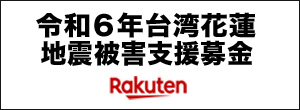Interview with Petra Collins
NeoL / 2017年12月26日 21時49分
(C) 2017 Petra Collins
12月7日、写真家、ペトラ・コリンズのエッセイ+写真集『Coming of Age』の日本版がDU BOOKSより発売された。老舗ファッションブランドや、ファッション誌から写真家としてのオファーが殺到する一方で、自らモデルとしてカメラの前にたち、著名なフォトグラファーとのセッションをこなすペトラ。そんな彼女にメールインタビューを行った。
ーー読了後、まるで誰かの日記か家族のアルバムを読んだかのような印象を強く受けました。本の冒頭でも、「パーソナルなもの」としてこの本を位置づけていらっしゃいますね。そういった普段人に見せない部分を公にするということは勇気のいることだと思います。本を出版するに当たって、何か背中を押してくれるようなものがあったのでしょうか?
Petra「若者の一人として、アーティストだとか、自分がすごく尊敬している人には、真実を語って欲しいと思ってきました。わたしのような人、つまりわたしが経験したのと同じような痛みを経たという人がいるんだってことを知りたかった。この本で重要なのは、わたしがそれをファンや読者に向けて行った、ということだと思っています。こういったパーソナルな問題を対処しなくてはいけないとき、特に若い女性たちは、孤独や疎外感を味わうことがありますよね。そんな時に、一度立ち止まって、『自分は独りではない』と思い出す場所が、彼女達には必要なんです」
ーータイトルについてお聞かせください。この本に掲載されている作品の多くは、20歳未満の若い女性を被写体としていますね。それによって、初めこのタイトルが成熟期をを迎えるまでの女性を意味しているように感じました。しかし本に寄せられたあなたの随筆を拝読して、これはあなた自身の‘coming of age’を言っているようにも感じたんです。写真を通じて、自分の過去に向き合っているように見えて……。
Petra「成長する過程、それが'Coming of Age'の定義であり、これは生きている間ずっと続くものです。この本が、今のわたしにとっての'Coming of Age'。これは決して、わたしが完全に成長を遂げたことを意味しているのではありません。単にわたしの考えが一つの到達点に達したということと、写真を撮り始めて10年が経過したその成長記録に過ぎないのです」
(C) 2017 Petra Collins
ーーローリー・シモンズによる寄稿文で、ウラジミール・ナボコフの『ロリータ』が触れられていますね。14歳に初めて読んだ時はまだカメラを手にする前だったのでしょうか。
Petra「『ロリータ』は自分の中でとても重要な本です。あの小説が描いている世界は、恐ろしくもあり、またそれが真実でもあるんです。わたし自身かなり早い段階から、写真や映像、音楽、といったものを通じて、自分は(往々にして性的な意味で)消費される対象であるということに気がついていたんだと思います。自分が主導権を持たない、特に、性的な主体性というものが失われているということを強く意識してきたんです」
ペトラは以前、自身のあるインスタグラム上の投稿がきっかけで、運営側からアカウントを削除されたという経験がある。”ビキニのボトムから見えた陰毛”、それがインスタグラムのセンサーシップに反しているというのが、彼らの主張だった。こうしたことは、クリエイティブシーンに置いて度々論じられてはいるものの、やはり未だ泣き寝入りする女性クリエイターが後を絶たない。ペトラはこのことについてハフィントン・ポストに記事を寄稿している。
「オーディエンスと繋がる、議論を始める、そして変化を生み出す。SNSはそのための場所なんです。アカウントを削除されたことで、女性の身体をありのままとして受け入れられない、またはそれに対する嫌悪感といったものが、いかに強く根付いているのかを感じました。それはまるで実際に誰かが、カミソリを手に近寄り、指を喉元に突き立てるようにして、世間が定めた美のイメージに屈しろとでも言っているかのようでした。」
(10/17/2013 HUFFINGTON POST)
https://www.huffingtonpost.com/petra-collins/why-instagram-censored-my-body_b_4118416.html
ーー対談の中でマリリン・ミンターにあなたが語った「エリート向けのアートを作っているだけじゃ、みんなのものの見方を変えることはできない」という言葉にとても共感しました。インターネット社会を生きるアーティストとして、作品を通じて人々の意識に影響を与えるには、メディアを利用しない手はない。一方で、自分が心の底から表現したいと思うことと、他人が求めるもの('イイね'を押したくなるもの)とのズレに悩まされることはあると思います。そんな時はどちらを優先しますか?
Petra「わたしは常日頃から、SNSには自分にとっての真実を反映させようと心がけています。そうすることで、変化を生み出すことが出来るからです。リアルかつ生のビジュアルイメージや考えを表に出すことは、人の心にリーチするための手段なんです。それまでの常識とは異なるものを視覚的に訴えかけていけばいくほど、人々が今見ているものや、物の見方を変えやすくなっていくと思っています」
(C) 2017 Petra Collins
SNSの中で人は、なりたい自分でいることが許されている。それは時に、現実世界と大きく剥離して、虚構の世界を映し出す。しかし、そんな世界で彼女はリアリティを語っていたいと言う。現在、ペトラのインスタグラムのフォロワーは69万人だ。姿の見えない膨大な数のオーディエンスを前にして、彼女はずっと、真実を伝えようとしてきた。写真がそれを写す鏡だとしたら、SNSは、それを人に見せるための手段だったのだ。
ーーカメラを手にしたことで、フェミニズムに対する考え方の変化はありましたか?
Petra「写真家であるということは、自分に力を与えてくれました。ビジュアルを作る側の人間になることで、まずはわたし自身が主導権を取り戻して、今度は他の女性達を主体の位置に持ってくることができたからです」
ーー日本では、フェミニズムの流れというものはあまり意識されていない、むしろ男性嫌悪と直接的に結びつけられてあまり良いイメージを持たれていないと感じることが多々あります。そんな中で、日本にも多くのファンを持つあなたの本が出版されるというのは非常に意味のあることだと思います。何か日本の女性達に対してメッセージはありますか?
Petra「フェミニズムの捉え方は人それぞれであっていいと思うんです。フェミニズムとは平等性についての話で、それがどうあるべきかというのは必ずしも皆同じではない。わたしは幸運にもこうやって自分が思うままに実際に働きかけることができているけれど、全世界どこでも皆が同じ環境にいるわけではないですよね。だから、あなたが心地よいと感じられること、平等を得るため、平等の定義を拡大させるため、安心して生きるためにすべきこと。それらがきっと、あなたにとってのフェミニズムのあるべき姿なんです」
写真家、ペトラ・コリンズと名まえを聞けば、「時代を牽引する若手写真家」「SNS時代の寵児」といったクリシェの数々が容易に連想される。『Coming of Age』ではそんな彼女のこれまでスポットライトに当てられてこなかった部分が、赤裸々に語られている。彼女はカメラの後ろに立って、そこに真実を写し、語り続けてきた。そんな彼女が、今度はカメラの前に出て、この一冊の本に自らの真実を写したのである。
(C) 2017 Petra Collins
Interview & Translation Makoto Kikuchi
Co-editing Tatyana Rutherston
Petra Cllins
『Coming of Age』
3,240円(税込)
(DU BOOKS)
http://diskunion.net/dubooks/ct/detail/DUBK195
amazon
内容紹介
カナダ・トロント生まれの24歳、ペトラ・コリンズは、タヴィ・ゲヴィンソンのウェブサイト「ROOKIE」のクリエイションで一躍名を知られ、グッチ、アディダス、ブルガリでも起用されるなど今では世界のアート/ファッション界にも注目される存在。それだけでなく、Instagramを巧みに使い、若い女の子たちに今という時代をどうやって生きるのかを提示し、彼女たちがもっている象徴的イメージを代弁することで多大なる人気を獲得している。また、ペトラは、社会的な示唆に富み、みんなで一緒に作り上げられるオープンな場である「The Ardorous」のようなウェブサイトを立ち上げて運営、クリエイティブなコミュニティをかたちにしようとしている。そのペトラが、クリエイション、生い立ち、家族、恋愛、自身のもつ精神的な病について初めて語った、エッセイ+作品集。ペトラ自身によるエッセーやポラロイド写真、これまでの作品に加えて、レナ・ダナムの母親としても知られる現代美術家ローリー・シモンズ、ポルノ的なアプローチだとされてアート界で不遇な対応を受けたが、現在ではガール・パワーの代弁者として広く認知されている現代美術家マリリン・ミンターなど、これまで彼女に影響を与えた女性たちによる寄稿文を収録。テートモダンでの映像展示や、一流メゾン、数えきれないほどの雑誌での写真・映像撮影を担当したペトラの魅力を明らかにする。
序文: ローリー・シモンズ
寄稿: マリリン・ミンター、アレッサンドロ・ミケーレ
翻訳: 冨田直子
B5変型 / 208ページ(オールカラー) / 並製
発売中
(C) 2017 Petra Collins
On the 7th of December, the Japanese edition of Coming of Age, Petra Collin’s first monograph was published by DU BOOKS. Beside her work as a photographer, she has been modeling with distinguished photographers. We, NeoL Magazine has conducted an interview with her.
ーーI felt as if I had just encountered someone’s diary or family album after reading your book, which you yourself described as ‘extremely personal’ at the beginning. It requires a tremendous amount of bravery to expose your private life publically - what were your motivations behind the publishment?
As an individual in their twenties, I have craved that sort of truth in artists or people I look up to. I just wanted to know that someone was like me, that someone had experienced pain like I did. With this book it was so important for me to do that for my fan base/ anyone reading the book. Dealing with these issues, especially as a young woman, can be so isolating and alienating, so having a place to turn to and having the knowledge that you are not alone is so powerful.
ーーPlease tell me a bit more about the title. I personally thought ‘Coming of Age’ referred to women before they reach physical maturity. This is possibly due to the fact that many of the models in the book seem to be teenagers under 18. However as I was reading your essays about your life and experiences, I came to realise that it may be a reference to your personal ‘coming of age’. I saw the book as a reflection of your own past through photography, what do you think?
The definition of Coming of Age is the process of growing up, which I think you do your entire life. This book was my ‘coming of age’ to now, which doesn’t mean I won’t grow more in the future, just that I have reached a new point of understanding and have now had 10 years of growth and work.
ーーIn Laurie Simmon’s essay, ‘Lolita’ (novel by Vladimir Nabokov) was mentioned. When you read ‘Lolita’ for the first time, had you already started your practice in photography?
‘Lolita’ was a pivotal book for me because it was scary, truthful and horrifying. From a young age I was taught (by images, movies, music, etc) that I was an object (usually a sexual one) to be consumed, that I had no agency, especially sexual agency of my own.
Petra wrote an article for the Huffington Post on Instagram’s censorship policy after her own Instagram account was removed: something that has been happening increasingly common nowadays. ‘Unshaven bikini line’ is their way to publisize their critique on this particular issue. While many female creators have been constricted due to the censorship programme, it is undeniable that in general, women’s body hair and nipples are objectified as sexual motifs.
“They (social media profiles) are ways to connect with an audience, to start discussion, and to create change. Through this removal, I really felt how strong of a distrust and hate we have towards female bodies. The deletion of my account felt like a physical act, like the public coming at me with a razor, sticking their finger down my throat, forcing me to cover up, forcing me to succumb to society’s image of beauty.”
(10/17/2013 HUFFINGTON POST)
https://www.huffingtonpost.com/petra-collins/why-instagram-censored-my-body_b_4118416.html
ーーYou once said, ‘it’s our duty to change it (the world with prejudice) by working inside of it, instead of just creating elite art, because that’s not going to change how people see the world.’ I couldn’t agree more with this opinion which you shared with Marilyn Minter. In the internet era, there is no way to provoke discussions without social media. Meanwhile, there should be a gap between what you really wantt to show on social media platforms and what people might prefer to see or ‘like’. Which do you prioritize, and why?
I think the more we create imagery that isn’t the norm and introduce it into the world, the easier it becomes to change our visual landscape and to change the way we look at things.
I always make sure to live my truth on social media, because that is how change is created. Putting out images and thoughts that are real and raw is the tool to connect us.
(C) 2017 Petra Collins
In the realms of social media, people can be anyone they want to be. This, sometimes, creates a sort of contradiction between realities and social media. However, she argues that she wants to continue portraying reality through an online community. Now she has 690 thousand followers on her own Instagram. She has managed to convey the truth to those who do not exist physically around her. If her photography can act as a mirror reflecting reality, social media is a way to let people see it.
ーーWere there any changes in your thoughts on feminism after you have defined yourself as a photographer?
Becoming a photographer was empowering to me because I could now be the creator of an image; I could take back that agency and make things that positioned women as the subject.
ーーIn Japan, the feminist movement is less active when compared to the West. The word ‘feminism’ has both aggressive and unattractive connotations. It is frequently considered as simply ‘man-hating’. I think it must mean a lot to you to be able to finally publish a book in Japan where you have a large number of fans. Do you have a message you would like to share with Japanese women?
I think you should take feminism the way you want it. Feminism is about equality and everyone’s version is different. I am lucky to be able to practice it so freely here but that is not the case around the world. So whatever makes you comfortable, whatever you feel you need to do to get that equality, to spread equality and to be safe, is what your feminism should be.
The name Petra Collins easily brings a couple phrases to the table - ‘leading emerging artist of the generation’, ‘the babydoll of the SNS generation’ and several more cliches. Collins’ “Coming of Age” gives us an insight to a raw, underrated side of the photographer, a book in which Collins’ is featured for her very own version of reality.
Interview & Translation Makoto Kikuchi
Co-editing Tatyana Rutherston
Petra Cllins
『Coming of Age』
3,240円(税込)
(DU BOOKS)
http://diskunion.net/dubooks/ct/detail/DUBK195
amazon
関連記事のまとめはこちら
http://www.neol.jp/art-2/
外部リンク
この記事に関連するニュース
-
富士花鳥園:今年の連休は富士山麓で猛禽類などと触れ合ってみる Fuji Kachoen: A week to interact with owls and hawks near Mt. Fuji
PR TIMES / 2024年4月23日 10時15分
-
生産間接材購買プロセスDX革新「D-JIT(ディージット)」 をサービスイン<English Follows>
PR TIMES / 2024年4月15日 13時15分
-
未来を切り拓く、世界の才能が集結 - FingerVisionが世界から選ばれた優秀学生へのインターンシッププログラムを開始
PR TIMES / 2024年4月4日 15時40分
-
日本ゼオン、偽造防止にもなる新素材を取り入れたアート作品を世界初披露
PR TIMES / 2024年4月4日 9時45分
-
芸能事業「UQプロダクション」を開始し、社長自らアーティストデビュー
PR TIMES / 2024年4月2日 12時15分
ランキング
-
1平均月23万円だが…〈初給与〉に心躍る大卒新入社員〈給与明細〉を見て愕然「天引き額が多すぎる!」
THE GOLD ONLINE(ゴールドオンライン) / 2024年4月25日 7時15分
-
2初期から老眼鏡をかけっぱなしにすると「老眼」が早く進む【一生見える目をつくる】
日刊ゲンダイ ヘルスケア / 2024年4月25日 9時26分
-
3「健康食品は健康に悪い」という不都合な事実…紅麹サプリ問題で明確になった健康食品の恐ろしいリスク
プレジデントオンライン / 2024年4月25日 9時15分
-
4ビジネスシーンでの「方言」どう思う? 「標準語にすべき」「方言でも問題ない」意見真っ二つ! マナーコンサルタントの見解は
オトナンサー / 2024年4月25日 7時10分
-
5「いつまでも結婚できない40代男性」の勘違い…高年収でも女性から選ばれない“深刻な原因”
日刊SPA! / 2024年4月25日 11時11分
記事ミッション中・・・
記事にリアクションする
![]()
記事ミッション中・・・
記事にリアクションする

エラーが発生しました
ページを再読み込みして
ください










